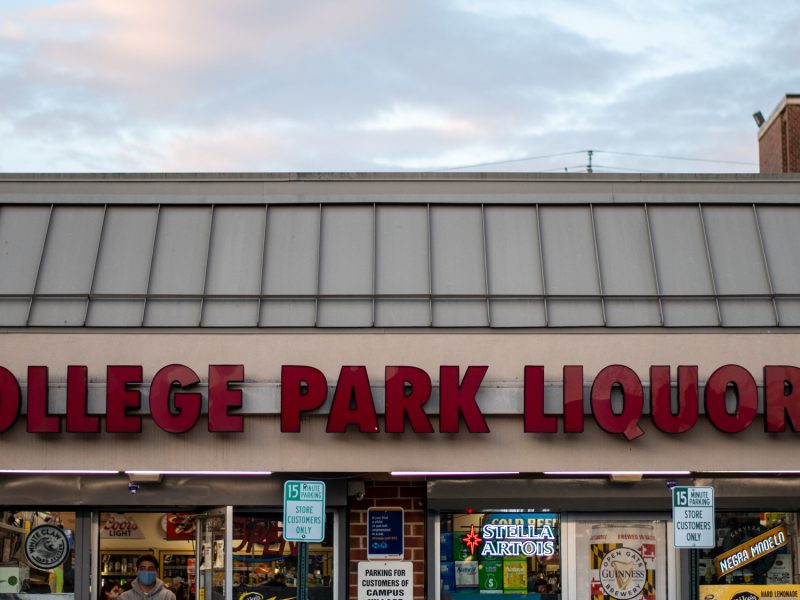Content warning: This article contains explicit mention of relationship violence and domestic abuse.
The Prince George’s County Board of Health hosted a panel in Largo Tuesday to address increasing domestic violence rates in the county and improve resources to support survivors.
The county has seen nearly 1,000 domestic violence cases this year, a 13 percent increase from last year, according to Prince George’s County Police Chief Malik Aziz. Aziz joined four other local leaders for the panel, which took place during Domestic Violence Awareness Month.
Panelists and attendees called for improved prevention measures and early education initiatives to combat domestic violence across the county.
Ebonique Bethea, a licensed social worker, said during the meeting she has witnessed domestic violence her entire life.
She said her life would be significantly different if policymakers prioritized addressing domestic violence in the past.
“Domestic violence isn’t just about a punch or a kick. It starts with belittling, phone checking, name-calling [and] privacy invasion,” Bethea said during Tuesday’s panel. “Many people call them red flags, but for those of us who have not seen anything different — that’s life.”
[PGCPS to construct 8 new net-zero energy schools by 2028]
Bethea emphasized the need to prioritize open discussions about domestic violence beyond October’s awareness month.
Denise McCain, the director of the PGC Family Justice Center, an organization that offers several programs to support domestic violence survivors, also spoke at the event. McCain said that domestic violence often extends beyond physical abuse.
Financial, emotional, psychological and sexual abuse are prevalent yet overlooked, she said.
The Family Justice Center serves around 1,200 survivors annually, but this is just a fraction of the total domestic violence cases reported each month, according to McCain.
The county issues more than 2,000 protective orders each month, according to PGPD sheriff John Carr.
Carr, who was a panelist at the event, stressed that intimate partner violence still remains a significant concern in the community. A holistic approach to domestic violence is necessary to address the needs of both victims and perpetrators, he added.
“We have to be consistent in what we do for our survivors. We have to be consistent in breaking this cycle,” Carr said. “We really have to work on those survivors and make sure that they understand that they’re not alone.”
Aziz said the county has already seen five intimate partner homicides this year, compared to only receiving three last year.
Mildred Muhammad, an award-winning global keynote speaker on domestic violence, also shared her insights and experiences with domestic violence survivors during the panel.
Muhammad is the ex-wife of John Allen Muhammad, one of the Washington, D.C., snipers who killed 17 people in a series of shootings in 2002.
[Prince George’s County community reflects on Mel Franklin’s ‘devastating’ resignation]
Mildred Muhammad has assisted more than 200 women in obtaining restraining orders in domestic violence cases. She emphasized that survivors face many systematic barriers, and many do not know how to navigate the legal system.
“We have to remember that domestic abuse and violence does not begin with the victim — it begins with the abuser,” Muhammad said during the panel.
Several panelists emphasized the importance of preventive measures for the county’s youth.
Elizabeth Aparicio, an associate professor for the University of Maryland’s public health school who was a panelist at Tuesday’s event, noted that children who experience neglect or abuse are at a higher risk of becoming victims or perpetrators. Intervening early can halt the cycle of victimization, she said.
Aziz said that while the department talks about youth issues, they must transform the conversations into concrete action and strengthen its relationships with community members.
“Action is the most meaningful part after the conversation,” Aziz said. “We can’t arrest our way out of [the] problem.”
Carr echoed Aziz’s sentiments and emphasized the department must prioritize youth to protect the future of the community.The police department also needs to hold themselves accountable in order to support survivors, Carr explained.
Aparicio highlighted that there is no universal approach to addressing domestic violence and that its effects are sprawling.
“This is a major issue in our community,” Aparicio said. “You didn’t think it would ever affect you.”



